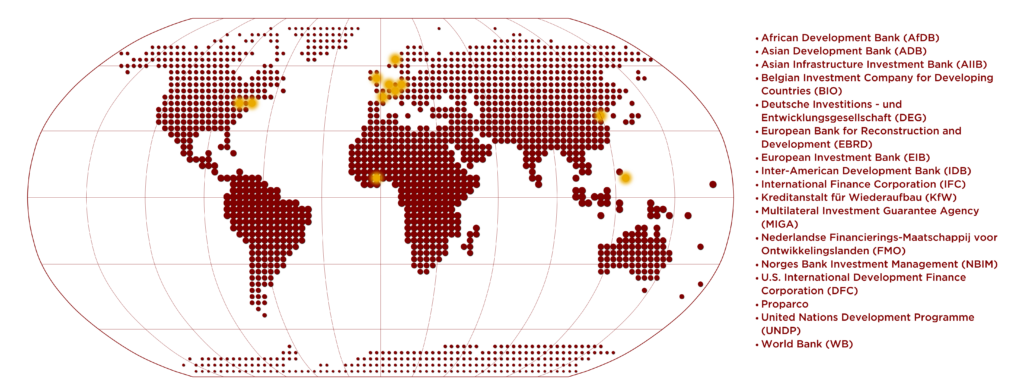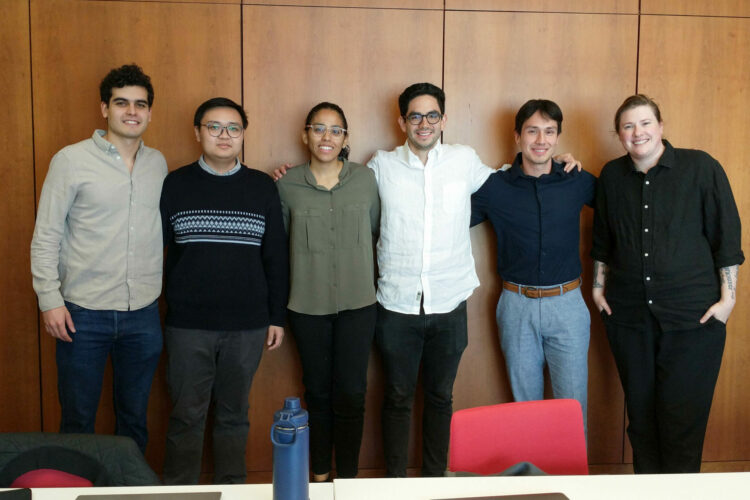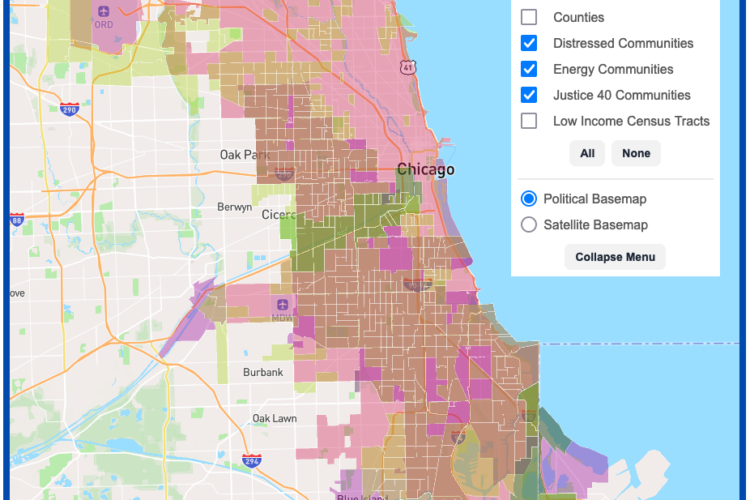Online Database Brings Transparency to Financing of Mega-Development Projects

A new searchable website compiling publicly available data from 17 global development banks, unveiled today by University of Chicago Data Science Institute (DSI), Inclusive Development International and the Schmidt Family Foundation’s 11th Hour Project, promises to bring transparency and accountability to the financing behind major development projects.
The Development Bank Investment Tracker (DeBIT)’s online database monitors investment dollars in and official complaints against more than 200,000 investment-bank-financed projects around the world, including extractive efforts like oil and gas development, metal and mineral mining, electrical infrastructure and industrial agriculture. The site also catalogs official complaints—ranging from environmental damage to corruption to the uncompensated displacement of entire villages—against the projects, with data provided by Accountability Counsel.
Inclusive Development International, which previously gathered project financial data manually as part of its Follow the Money to Justice initiative, partnered with DSI to create the tool under the 11th Hour Project-funded Data Science for Social and Environmental Impact.
“The goal of DeBIT is to make this data more publicly available, easier to search, and easier to use, to find which companies are running projects and where those projects are,” said Daniel Grzenda, staff data scientist at DSI. “We take all that data and give users a clear view of the funding, where it’s coming from, and how it’s affecting the local community that it’s supposed to be helping.”
Information available on DeBIT is expected to be used by community advocates holding development finance institutions accountable for displacement or pollution, journalists covering development and environmental issues, and watchdog organizations monitoring projects for corruption. DeBIT is open source, allowing researchers worldwide to add to and help create the most comprehensive trove of records about private bank-funded development.
DeBIT is the latest addition to Inclusive Development International’s Follow the Money suite of tools and resources, funded in part by the 11th Hour Project, to empower advocates supporting communities that are adversely impacted by investment and development activities.
“We are so excited to be launching DeBIT, which will expand the reach of our Follow the Money methodology and make it more accessible for advocates on the frontlines protecting community rights.” said Dustin Roasa, research director at Inclusive Development International. “Working with the DSI has really opened our eyes to what technology and data science can do.”
“We need to level the playing field for frontline communities whose rights are threatened by major development projects,” said Joseph Sciortino, executive director of The Schmidt Family Foundation. “One way to do that is to arm these communities with high-tech data tools that have previously been out of reach.”
DSI serves as an important resource for nonprofits like Inclusive Development International and other 11th Hour Project grantees to access software and data science expertise. DeBIT is the first major public, open-source tool created through the partnership.
The DeBIT project came together with support from University of Chicago undergraduate and graduate students who developed their data, software and research skills while addressing a real-world problem—the challenges of holding investment banks accountable for environmental and human rights impacts of their work. With DeBIT lead developer Launa Greer, DSI software engineer Trevor Spreadbury, and Grzenda, the student teams built web scrapers for gathering data from development bank websites, engineering them to catch future additions and edits.
“It gave students experience in the data collection system side of data science while also engaging them in a cause that a lot of our students care about,” Grzenda said.
The DeBIT project reflects the collaborative 11th Hour Project community in merging data collected by Inclusive Development International and Accountability Counsel. DSI plans to expand the tool by adding mediation agreements and the role of nonprofits and watchdog groups in helping complaints reach resolution.
“The collaboration was really key to developing those tools to equip people to do this research,” said Roasa. “We’re eager to get these tools and investigative techniques into the hands of as many people as possible.”
About Inclusive Development International
Inclusive Development International works to advance social, economic and environmental justice by supporting communities around the world to defend their rights in the face of harmful corporate projects. Through research, casework and policy advocacy, we hold corporations and development agencies accountable to their human rights and environmental responsibilities and promote a more just and equitable international economic system.Learn more at inclusivedevelopment.net and follow us on Twitter and LinkedIn.
About The Schmidt Family Foundation
Established in 2006 by Eric and Wendy Schmidt, the Schmidt Family Foundation works to restore a balanced relationship between people and planet. Through grantmaking and investments, the foundation partners with communities around the world in working for renewable energy, resilient food systems, healthy oceans and the protection of human rights. The foundation makes grants and impact investments through two programs: 11th Hour Project and Schmidt Marine Technology Partners.

Community Data Fellow Stephania Tello Zamudio helps broaden internet access for Illinois residents

DSI Software Engineers create interactive map tool to maximize climate investment tax benefits

Incoming UChicago Data Science and Computer Science Associate Professor raises additional $106 million in new funding round for company, Together AI
